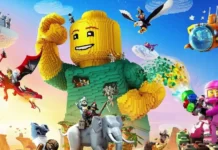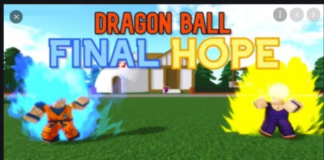Many people do crossword puzzles because they believe it helps keep their brains sharp and may even help prevent Alzheimer’s and dementia. While working a puzzle does flex your cognitive skills, that’s not all it can do.
A new study compared participants who played crosswords to those who played other “brain games.” The results showed that those who did crossword puzzles had less cognitive decline at Weeks 12 and 78.
Improves Visual and Spatial Skills
Whether working on a jigsaw puzzle or playing solitaire, you’re improving your visual and spatial skills. Puzzles can also boost your vocabulary and spelling and increase your processing speed and abstract thinking. By utilizing a more prominent language, you may become more creative and efficient at work.
Puzzles can also help you improve your short-term memory. For example, if you’re working on a crossword puzzle and remember a clue while trying to solve it, your brain will store that information in your short-term memory to recall it later. This can help you remember important dates, names, and places.
The study found that people who did word and number puzzles more regularly performed better on cognitive tests, including grammatical reasoning and memory. Those who used puzzles less frequently performed worse on these tests. The researchers conclude that the frequency of puzzle use is directly related to cognitive improvement. They also found that completing puzzles delayed the start of accelerated cognitive decline by 2.54 years. This is similar to findings from other studies on the benefits of puzzles for those at risk of Alzheimer’s and dementia.
Improves Memory
Whether solving a crossword puzzle or working on a jigsaw, your body releases dopamine when you complete one of these brain teasers. This neurotransmitter boosts your mood and improves your memory and concentration. Performing cognitive tasks that require a lot of mental effort can also slow the progression of Alzheimer’s and other neurodegenerative diseases.
In a recent study, researchers recruited 107 participants between the ages of 55 and 95 to participate in online training sessions for either crossword puzzles or other cognitive video games. Participants trained four times a week for 30 minutes over 12 weeks.
Using the online cognitive test systems, researchers found that people who regularly completed word puzzles performed better on attention, reasoning, and memory tests than those who did not play these types of puzzles. Specifically, the people who frequently engaged in these types of puzzles performed as though they were ten years younger on tests of grammatical reasoning and eight years younger on tests of short-term memory accuracy.
Improves Attention
Whether you’re a seasoned crossword puzzler or just starting, solving these often-intricate problems can help sharpen your concentration skills. This is because the entire process forces you to focus on a single task and stay absorbed until you complete it. This helps you learn to control your emotions and focus on one thing at a time, which will benefit many aspects of life.
Millions of people suffer from mild cognitive impairment, which causes trouble remembering things, concentrating, and making daily decisions. It’s a precursor to dementia and other brain disorders, and studies have shown that engaging in activities like working crossword puzzles can improve memory and thinking abilities.
According to a recent study published in the journal, people with mild cognitive impairment trained in crossword puzzles showed more significant improvements than those trained in computer games targeting cognition. This was because doing the puzzles stimulated a more comprehensive range of cognitive functions, which were not measured as well in computer games.
Improves Problem-Solving Skills
Puzzles, whether in the form of crosswords or games, challenge your logic and problem-solving skills. These skills are honed over time and can be applied to other tasks in life.
Practicing these types of mental exercises is especially helpful for senior citizens as it helps them to keep their brains healthy and may even delay the onset of diseases like dementia or Alzheimer’s. One study found that working on crossword puzzles helped to slow the decline of those with mild cognitive impairment, an early stage of memory loss that can lead to dementia.
For the average person, working on a puzzle daily can improve your ability to deduce answers, work through a solution, and spot mistakes when completing them. According to today, these are essential problem-solving skills that can be applied to other areas of your life. Using your brain to solve puzzles makes you more alert and can help you perform better at work or while driving. This could also make you a better Tetris-like packer if you’re a parent trying to load a car for your college-age kids.
Improves Mental Flexibility
As you solve puzzles, you develop more flexibility in your brain. You’re forced to switch between short-term memory and long-term recollections as you make connections with the clues strewn across the grid. It would help if you also thought creatively, using verbal fluency and wordplay skills. The more of these flexible cognitive abilities you have, the better equipped you are to tackle a crossword.
A recent study found that solving crosswords can help slow the decline of mild cognitive impairment, a precursor to dementia. The study compared crosswords to other “brain games” and found that the former improved participants’ cognition at 12 and 78 weeks.
Another benefit of working crosswords is the sense of accomplishment you experience when you’ve solved a tricky question. This feeling prompts your brain to release dopamine, a neurotransmitter that boosts mood and improves motivation. It’s the same feeling you get when you win a game of Scrabble or finish a challenging coding project at work. It’s no wonder that filling in a daily crossword is one of the most popular brain-stimulating activities.


























